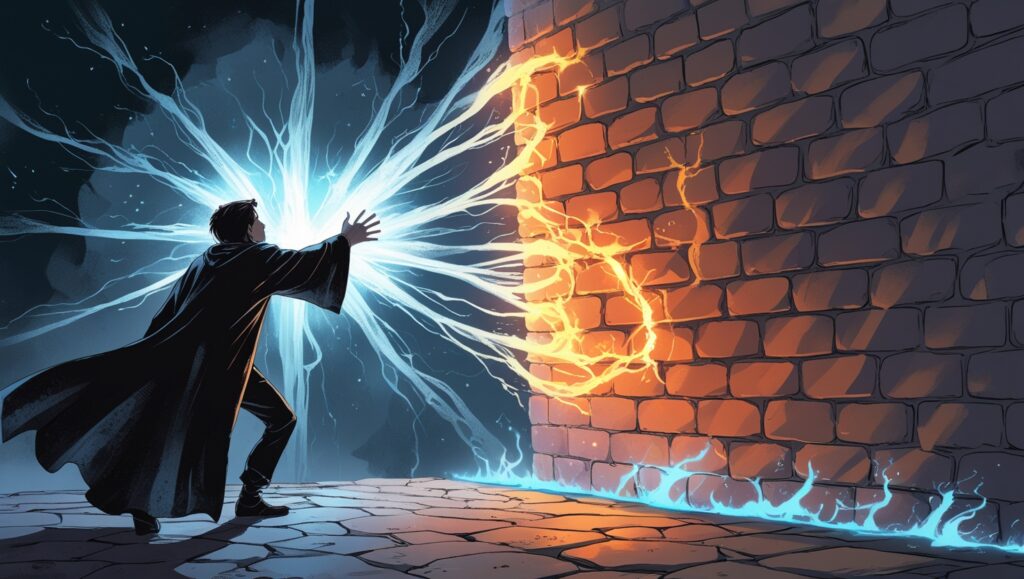What Is It?
The term “Dunkles Empath” may sound contradictory, but it describes a unique psychological profile. It is someone who has a deep understanding of the emotions of others and can use them to feel them for self-use, manipulation, and even harmful purposes.
In contrast to traditional empathy, which instinctively heals and helps, it uses emotional consciousness to control, dominate, or deceive others. The combination of emotional intelligence and dark traits makes it particularly strong and difficult to identify.
Studies show that it is a rare subset of the population, but its effects can be disproportionately harmful. They are often attractive, magnetic, and difficult to resist – until their true nature emerges.
The first step in understanding it is to protect yourself from emotional damage.

Characteristics of a Dark Empath
It shows an attractive combination of traits that may appear contradictory on the surface. Some of the most common characteristics are:
- High emotional intelligence: Easily read and interpret other people’s emotions.
- Manipulation tendencies: Use emotional knowledge to influence and control outcomes.
- Charismatic Being: It is often sympathetic and attractive in social situations.
- Lack of true sympathy: Despite understanding of emotions, they lack a real desire to help.
- Calculation Behavior: Each action is often intentional with a hidden agenda.
- Moral Flexibility: If you believe it will serve your purposes, you justify suspicious behavior. It have ability of manipulation mustn’t be due to a lack of understanding. Rather, it is her deep understanding of abuse that makes it dangerous. It can recognize weaknesses from a mile away and is not used for personal gain.
These properties make Dunkle’s empathy complicated and almost paradoxical personality, and are attractive and worrying.
The Psychology Behind Dark Empathy
To truly grasp the phenomenon of it, we must be immersed in the psychological foundations that define it.
In the Core, dark empathy has both cognitive empathy (the ability to understand the emotions of others) and emotional empathy (the ability to feel what others feel). But what distinguishes it is how these empathic skills are used for manipulation rather than mutual benefit.
Furthermore, many dark themes show features related to the dark triads of psychology:
- Narcissism: a sense of assertion and dominance.
- Machiavellianism: A strategic and manipulative approach to relationships.
- Mental disorder: lack of repentance or guilt.
Not all it has all three dark triad traits on an extreme level, but the interaction between empathy and these dark aspects creates a uniquely effective and often dangerous personality.
Signs You Are Dealing with a Dark Empath
Identifying it early can save a lot of emotional stress.
- Excessive Charm: It can give you the feeling of being the most important person in the room.
- Subtle operations: They often do what they don’t normally do.
- Reland: You raise them when they subtly undermine their trust.
- Emotional guilt: You are using your feelings towards yourself.
- Unpredictable emotional responses: You can gain your trust by reflecting on your emotions.
These are interfering experts, making it even more difficult to distinguish manipulative behavior from actual care.
Pro Tip:
Trust patterns, not words. Consistent, subtle manipulation is a hallmark of the dark empath.
Why Dark Empaths Are So Dangerous
Many manipulative people can discover remotely, but it is extremely dangerous because they truly understand emotions.
Here’s the reason:
- Deep emotional insight: You know exactly when to say it.
- Stealth Operation: You work subtly and make it difficult to recognize your tactics.
- Strong social skills: Their sympathy disarmed skepticism.
- Calculated Empathy: Use empathy to calm or attack, depending on your goal. Victimss of often disrupt their interactions with it, simultaneously caring for and feeling controlled. Over time, this emotional vortex can seriously undermine your self-esteem and emotional wells.
Dark Empaths in Relationships
When it comes to relationships, it can be exhilarating and destructive.
Romantic Relationship
Romantic Dynamics, Dark Empathy in May:
- Shower early with a love bomb.
- Gradually introduces manipulation behaviors that disguise care.
- They are subtly lined up by friends and family.
- Use guilt and emotional intelligence to control decisions.
Relationships can be felt passionately deeply at first, but over time, they can undermine her sense of independence and self-world.
Friendship and Family Bonds
It can also destabilize friendship and family connections:
- It can create a division between you and others.
- Spread rumors or half-truths while maintaining the façade of innocence.
- Use the emotional lever to ensure loyalty.
Recognizing all kinds of relationship signs is important to protect your emotional health.
Dark Empath at the Workplace
It not only reserves the right to personal relationships, but the workplace is another playground for your tactics.
How to Decide on Dark Empath or Boss’s Colleagues
- You often play office policy spectacularly.
- They appear to be supportive, but subtly obstruct others behind the scenes.
- We collect personal information and use it as a lever later.
It bosses can initially act as the perfect mentor, but over time, you will notice patterns of preference, guilt, and calculated manipulation.
Coping Strategies for a Healthy Workplace Environment
- Personally maintain personal and emotional information.
- Document important conversations and agreements.
- Create a network of trustworthy colleagues.
- Set the Company’s specialized borders early.
It is emotionally far away, and professionalism can limit its impact.
Can it Change?
Changes are possible, but rarely so, especially since it’s not a strong suit for it.
Self-confidence and potential for transformation
Some of it. If you face repeated consequences of your actions, your self-capacity can develop. In these cases:
- Therapy focuses on empathy training and emotional regulation.
- Personal motivation for change (often caused by life crises) is important.
- When you are seeking expert help
If you are in a relationship with it, treatment will help you control the limitations, regain emotional independence, and heal from manipulation. Persuading yourself to seek it and seeking help is a tough struggle.

How to Protect Yourself from it
Dealing with it can be exhausting, but you are not powerless. Here’s how you can protect yourself:
- Set Strong Boundaries: Clearly define what is acceptable and what is not.
- Limit Emotional Disclosure: Share only surface-level information.
- Trust Your Gut: If something feels off, it probably is.
- Don’t Rationalize Their Behavior: Emotional manipulation is never justified.
- Seek External Validation: Talk to trusted friends or a counselor for perspective.
Learning to detach emotionally while still being kind can disarm a dark empath’s ability to manipulate you.
Differences Between Dark Empath and Narcissist
While both this and narcissists can be harmful, key differences set them apart.
Empathy vs. Lack of Empathy
- Dark Empaths: Understand and feel others’ emotions but use them manipulatively.
- Narcissists: Often lack true empathy entirely and are more openly self-serving.
Levels of Self-Awareness
- Dark Empaths: May have partial self-awareness of their actions.
- Narcissists: Usually see themselves as flawless and are highly resistant to criticism.
Understanding these differences can help you better tailor your boundaries and responses.
Famous Fictional and Historical Dark Empaths
Some of the most fascinating characters in fiction — and real life — show signs of being it.
Characters in Movies and Books
- Loki from the Marvel Cinematic Universe: Charming, empathetic, but manipulative.
- Amy Dunne from Gone Girl: A Mastermind manipulator with a deep understanding of emotions.
Real-World Examples
While it’s tricky to diagnose historical figures posthumously, many believe figures like:
- Rasputin: Russian mystic who wielded influence through charisma and emotional manipulation.
- Machiavelli: His works reflect an understanding of dark, empathetic tactics.
FAQs About Dark Empaths
Can this love genuinely?
Yes, but their love often comes with conditions and manipulative undertones.
Are they aware of their manipulation?
Some are partially aware, but many rationalize their behavior as “necessary” or “deserved.”
How rare is this?
Studies suggest these are relatively rare, representing a small but impactful subset of personalities.
How do you disarm this?
Setting firm boundaries, staying emotionally detached, and refusing to be guilt-tripped are effective strategies.
Can it be cured?
Change is possible but requires significant self-awareness, personal motivation, and professional intervention.

Conclusion: The Enigma of the Dark Empath
The conclusion highlights the true nature of this and the paradox at the heart of its character.
It appears to be sensitive, understandable, and emotionally intelligent, just like real empathy. But under this surface, they use deep emotional consciousness to manipulate, control, and hurt others. Your emotional intelligence becomes a weapon, not a gift. You use it like a sword – cut into people’s emotions, first gain trust, then reveal it for personal gain.
Highlights important lessons. Warning Sign Understanding and it Manipulation Strategies Empower you – Strength to protect yourself from emotional damage.
The final advice is a powerful call to consciousness:
It control, manipulation, lack ofIsis always on alert when it comes to people who are very charismatic and emotionally intelligent, “the more untrue, the better.”
Trust in your instincts – if someone doesn’t match their actions with their words, this is a red flag.
Remember the difference between real empathy and dark empathy:
True empathy uplifts, heals, and supports.
Dark empathy controls, manipulates, and deceives.
